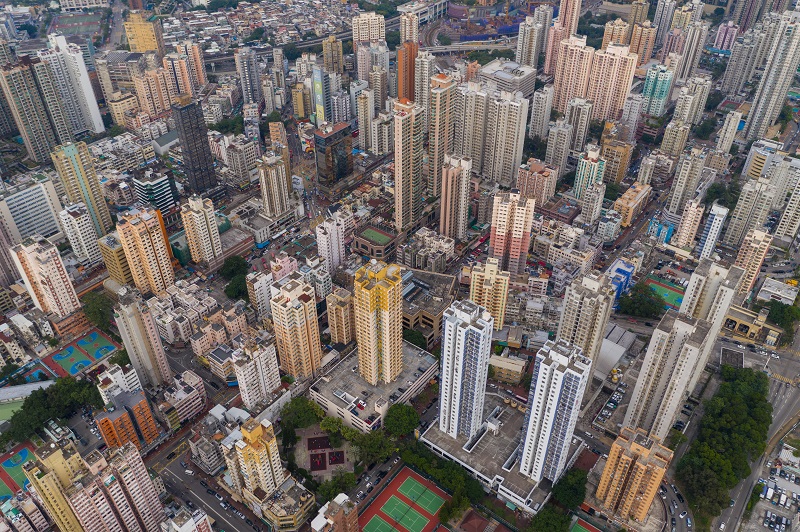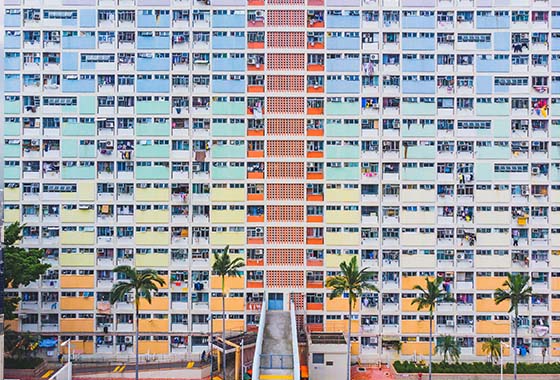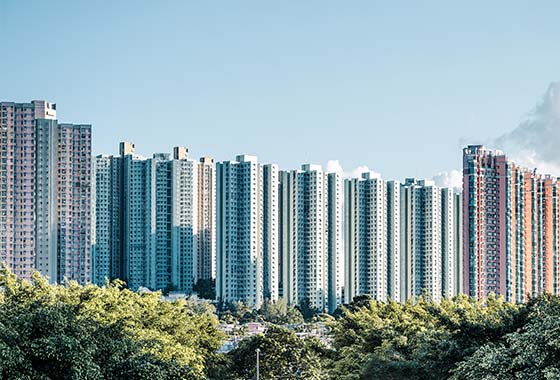Obstacles to relaunch Tenants Purchase Scheme not insurmountable
This article appeared originally in the CHINADAILY on 9 April, 2020.
Authors: Ryan Ip, Head of Land and Housing Research

In recent years, many academics, politicians, representatives of service organizations and grassroots communities have called for the revival of the Tenants Purchase Scheme (TPS). The TPS was introduced in 1998 by the Hong Kong Housing Authority, but after the launch of Phase 6B in August 2005, the Scheme was halted in line with the SAR government’s decision to withdraw from direct provision of subsidized flats for sale. Today, the government is reluctant to endorse proposals for relaunching the TPS, often citing the Scheme’s “insurmountable management challenges”.
Based on an in-depth study, we have divided the management issues involving TPS estates into three categories, namely estate boundary determination, estate maintenance and mixed ownership, and we believe that there are solutions to all these “problems”.
The first challenge is the determination of estate boundaries. When the TPS was introduced in 1998, the government failed to develop a systematic approach to the determination of estate boundaries, posing administrative challenges later on. One of the consequences is that many government or community facilities sit in the common areas of TPS estates, so the owners’ associations at these estates are tasked with their maintenance, although the facilities are actually used by the public or specific organizations. For example, the residents of Tai Wo Estate in Tai Po have to share the costs of maintaining the fence of a nearby school because the fence is located within the estate boundaries, yet they are not allowed access to the school’s facilities.
The Hong Kong SAR government can take a leaf from Singapore’s book and take full responsibility for the management of TPS estates, while obligating flat owners to paying management fees to the government
To overcome the challenge, the government can learn from these mistakes when relaunching the TPS and exclude such public facilities from the estate areas, assigning the responsibility of their management and maintenance to the departments or organizations that use the facilities.
The second challenge is estate maintenance. Many TPS flat owners are reluctant to pay for building maintenance because of the high costs. When selling the TPS flats, the government has already contributed a subsidy of HK$14,000 ($1,800) per household to the Maintenance Reserve Fund, but this is clearly not enough. The Housing Authority estimates that each public housing unit costs an average of HK$5,000 in maintenance and improvement in 2020/21. Based on this estimate, the HK$14,000 subsidy is barely enough to cover a household’s maintenance costs for three years.
In comparison, the Singaporean government has played an active role in assisting the owners of its HDB flats to carry out improvement works, inside and outside the flats as well as in the neighbourhood, covering most of the expenses. The Hong Kong SAR government is not obliged to follow suit, but it can at least increase its injection into the Maintenance Reserve Fund. Assuming that each unit incurs an annual maintenance cost of around HK$5,000, if we apply a 4.7 percent annual increase in maintenance costs based on the average for the past 10 years, along with a 2 percent discount rate, the maintenance costs over a 30-year period would be approximately HK$219,470. If each TPS unit is sold for HK$1 million, the maintenance costs account for only 22 percent of the government’s sale proceeds, which makes them easily affordable.
The third challenge is mixed ownership, which means there are owners and tenants in the same TPS building. In fact, the majority of private residential estates in Hong Kong are inhabited by both owners and tenants, without any notable management problems. We believe that the root of TPS management problems is that the government, as the owner of the unsold/rental units in a TPS building, declines to manage mixed-ownership estates, citing the “principle of non-intervention”. Meanwhile, some of the HDB estates in Singapore also have a mixture of rental and purchased flats, but they experience no management problems because all HDB estates are under the sole responsibility of the Town Councils.
The Hong Kong SAR government can take a leaf from Singapore’s book and take full responsibility for the management of TPS estates, while obligating flat owners to paying management fees to the government. The problem can also be addressed at its source – by creating financial incentives for all tenants to purchase the TPS flats they occupy and encouraging those who don’t to move to an estate that is for rent only. This will solve the mixed-ownership problem.
As the saying goes, “Where there is a will, there is a way.” Nothing is impossible if we are committed to a cause. As the examples above have demonstrated, there are solutions to all the TPS management challenges. We believe that as long as the government is willing to take up its responsibilities and adopt our proposals, all those problems can be overcome.



